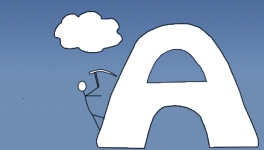« Are Payday Loans Repugnant? | Main | My Arms Hurt »
College Hoops and the Endowment Effect
By Chris | February 21, 2008
My university has a good basketball team that has been consistently ranked this season. A few weeks ago we played our arch-rival at home. Student tickets were only available in season packages at the beginning of the fall semester. If you didn’t have season tickets and wanted to go to the big game, you had to cough up $100 to buy a ticket on the secondary market. The day of the game students lined up outside the basketball arena in the wee hours of the morning. Everyone was wearing school colors and discussing the likelihood of upsetting one of the best teams in the country.
In my Macroeconomics class I asked my friend Josh:
“Are you going to the game?”
He replied:
“No, tickets are too expensive. But, if I had a ticket, you know I would be there.”
I tried to explain to him that his statement revealed inconsistent preferences. If he valued the ticket more than 100 dollars he should buy a ticket and go to the game. Conversely, if the game wasn’t worth 100 dollars, he should sell a ticket if he found one lying on the ground. Class started before he had a chance to defend himself. It is possible that finding a ticket would increase his income to the point where his preferences would change. But, that is unlikely. A hundred dollars is only a small portion of an average student’s wealth. And, if he truly was broke, the prospect of selling a 100 dollar ticket to pay for food and clothing should be all the more attractive. It seems Josh would be more likely to keep a ticket if he already owned it. This is called the endowment effect by economists. I can’t criticize Josh’s apparent irrationality, I find the endowment effect influences my behavior as well.
I am just over 2 years younger than my brother. Growing up, we would often receive very similar presents from relatives and family friends. I might get a soccer ball and my brother would get a basketball. We might be given two different models of Nerf guns. I quickly learned to prefer the gift I received, even if it may not have been my first choice. It was a defense mechanism. Conceding that my brother had the better present was psychologically costly. It was admitting defeat in the competition for our friend’s and family’s affections. Similarly, when I bought my Ford Explorer, I felt the need to justify my decision. My brother poked fun at me when my Explorer had mechanical problems and criticized it’s poor gas mileage. I pointed out the futility of his high fuel efficiency when his Camry slammed into a deer and quit running. To this day, it is difficult to frankly evaluate the prudence of major decisions, from my car to my college choices. I’m too emotionally invested in my decisions. This isn’t limited to petty brotherly competition. You’ll find the same tendencies if you ask someone about their career choice. It seems that people have a preference for the things they own and the decisions they’ve made. This may complicate economic models, but it’s not necessarily a bad thing. Being content with what you have is a big part of happiness.
Topics: Economics | 3 Comments »



February 21st, 2008 at 10:10 pm
Usually we come up with apt reasons to explain why we make a certain decision. But I wonder if we emotionally make a decision first, and then logically find a few reasons to persvade ourselves and others to believe that we made the right one. In another word, we may be emotion dominated and rationalize our decision through a subconsciously pychological mechanism. It is like if I bought a quite expensive and fancy perse which I will rarely use, I could rationalize this behavior with a reason like: I worked so hard last semester, I deserve something I really like as a reward.
In addtion, I can not agree more with your last line. As I see it, being content with what you have, which doesn’t mean we do not persue more, is a kind of ability. Those people who obtain it have happier lives than those don’t. I personally prefer being happy and content to being objectively right.
March 11th, 2008 at 8:29 pm
chris,
some people may have a preference for things they already have but I have found a great deal more people (myself included) are quite the opposite. I myself however have exhibited the exact same behavior. Do you think something else is going on? The apparent dichotomy might alternately be resolved by acknowledging the negative utile inlfuence of having to sell the tickets. I was given two tickets to an NBA game that I wouldn’t normally have paid to go to. I used them. I do remember contemplating scalping them but I decided that since they were free I would go ahead and just use them. Scalping them would be too much of a hassel. If someone had offered me face value (over $100 apiece), I probably would have accepted. Outside of this however, the transaction costs tipped the scale in favor of going to the game.
March 11th, 2008 at 8:32 pm
pls excuse the grammar in above post. next time i might proofread